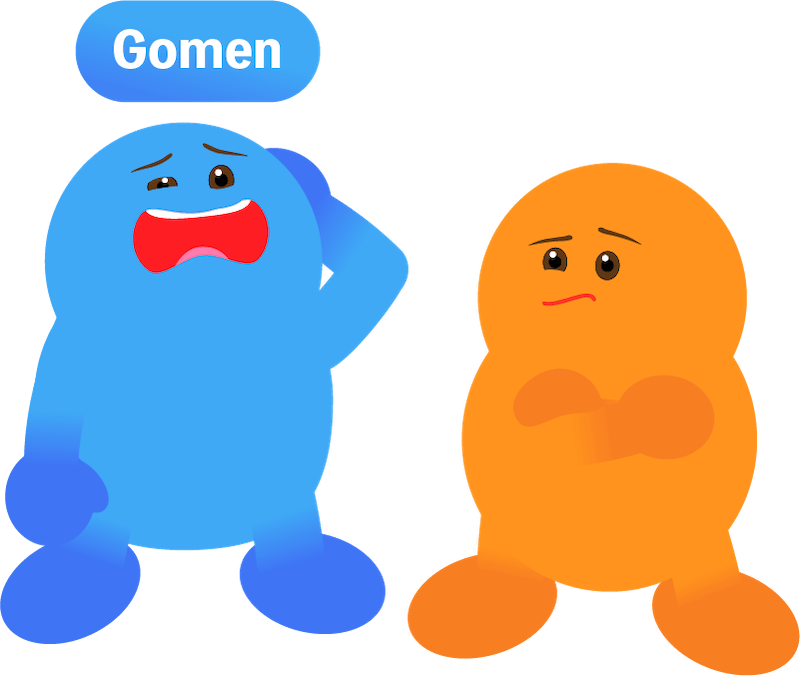
When you forgot to bring a book you borrowed from your friend.
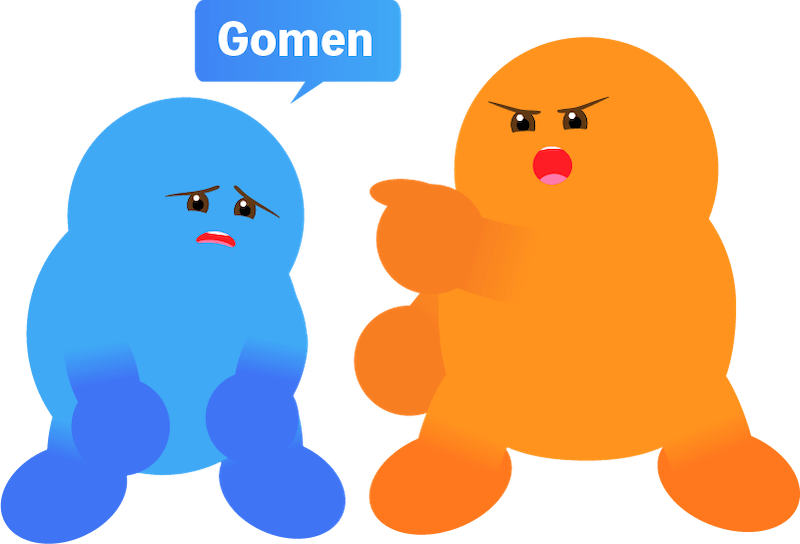
In this lesson, we're diving into the art of apology!
There's a whole range of phrases we use, depending on the situation and how formal we need to be but we will focus on the most common ones.
Gomen
This is what we typically use with close friends, family, or anyone we speak casually with in Tameguchi.
There are three variations of Gomen that we often use:
Gomen
GomenNe
GomenNasai
Gomen for casual apologies over small things, like being slightly late or step on your friend's foot.
GomenNe carries a friendly vibe and is often used by women and children. However, it's not exclusive to them — men use it too, especially when saying sorry to someone younger.
If you've caught some Japanese shows, you might've noticed Ne popping up at the end of sentences quite a bit. It’s an ending particle that can change the nuance of a sentence by adding emotion or tone.
Typically, Ne seeks agreement or confirmation from the listener, akin to saying “right?” or “isn’t it?” in English.
But when it comes to GomenNe , it's there to soften the apology, making it sound friendlier and more casual than a simple Gomen.
GomenNasai is the polite form of Gomen .
Sumimasen
It isn't typically used with close friends and family because it carries a formal tone.
So, for those times you need to apologize to, say, a boss or a stranger - anyone you'd usually use Keigo with - you'd go with Sumimasen instead of GomenNasai .
Using GomenNasai in formal situations might come off as a bit childish and immature.
Now, you might be asking yourself, if Gomen is for casual apologies, and Sumimasen is for formal ones,

Imagine a situation where you've messed up with your parent that we usually talk with in Tameguchi.
Say you did something really bad, like taking money from their wallet. If you're caught, just a plain Gomen won't cut it.
You'd say GomenNasai to show you really mean your apology and grasp the gravity of what you've done.
It's about matching the apology to the seriousness of the situation, not just who you're talking to.
So GomenNasai is more polite than Gomen but both are usually used with someone you talk in Tameguchi with.
And back to Sumimasen.
It's also used to politely grab someone's attention, similar to "excuse me".
For example, to get a server's attention at a restaurant or when asking for directions from a stranger, you'd use this phrase.
In spoken Japanese, it is often pronounced SUIMASEN, instead of SUMIMASEN.
SUIMASEN

When you forgot to bring a book you borrowed from your friend.
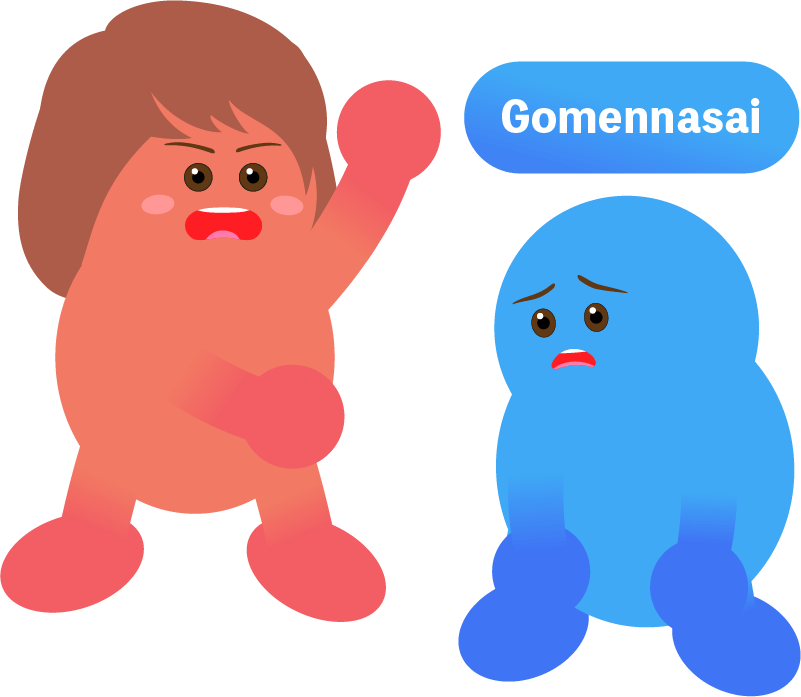
You lied to your mom and she got mad.
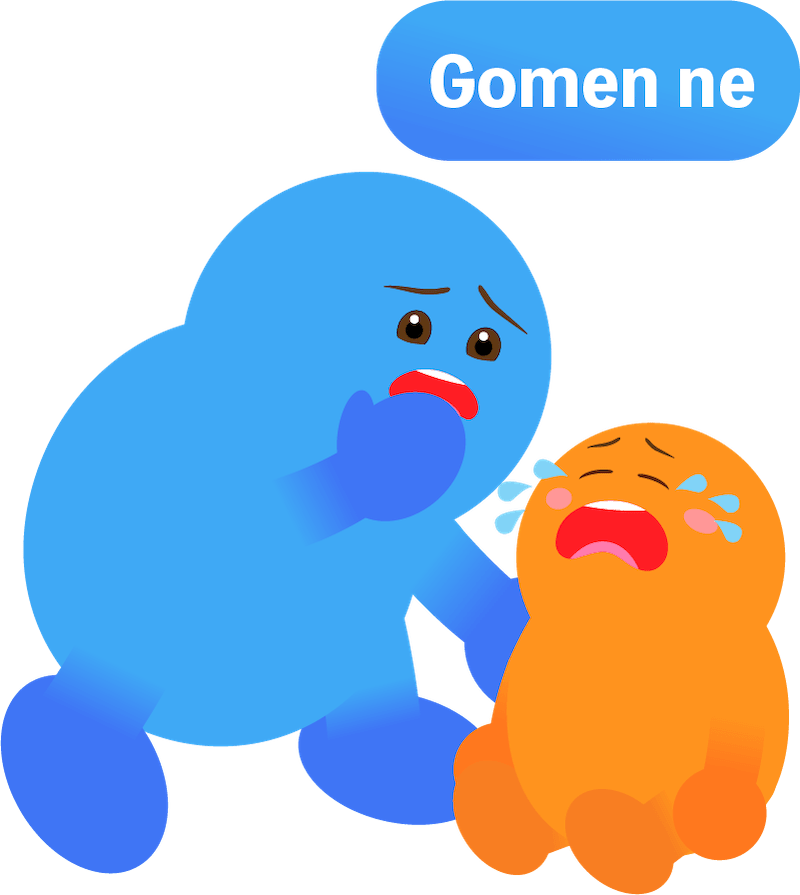
You bumped into a little kid and made him cry.
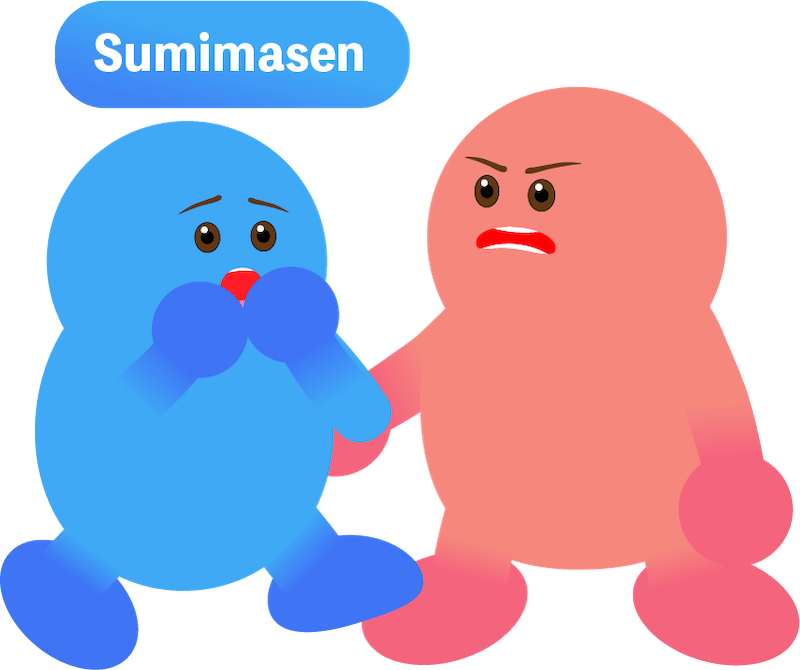
You accidentally stepped on someone's foot on the street.
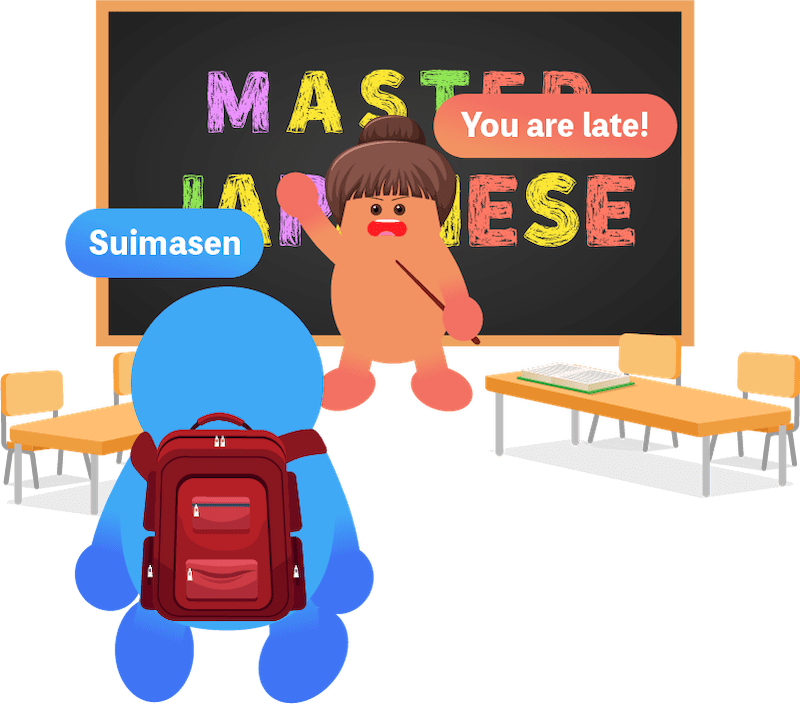
You are late for school.
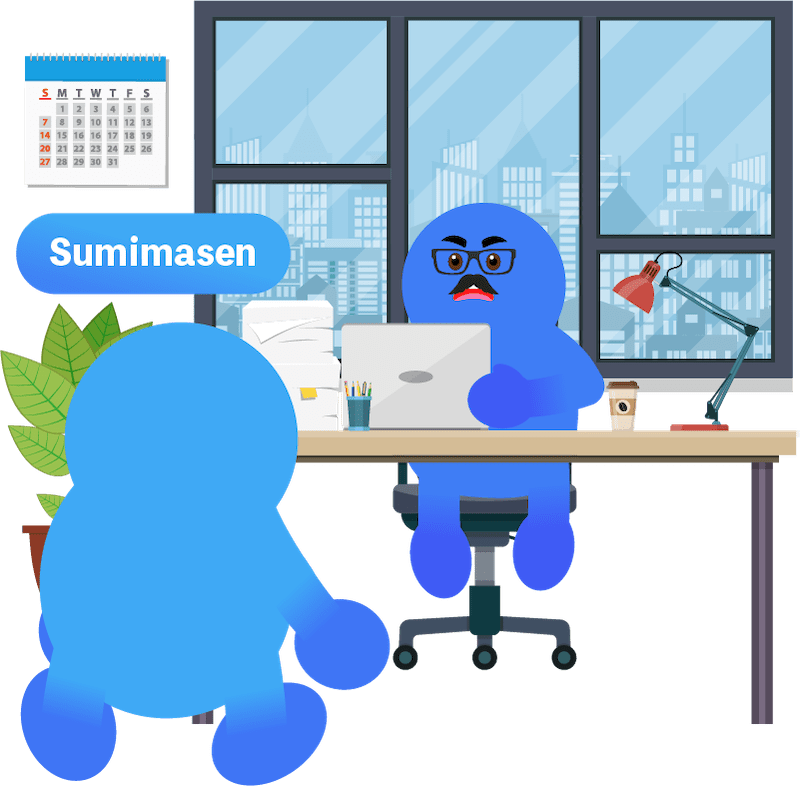
You made a mistake at work.
To sum it up, use Gomen or GomenNasai based on how serious your mistake is when you apologize to someone you talk to in Tameguchi and Sumimasen with someone you talk to in Keigo.

Ever caught someone doing this extreme apology in a Japanese show or manga?
It's called:
Dogeza
it's the most intense way to say sorry in modern life.
A bit on its origin: Dogeza isn't new; it's an age-old Japanese custom for showing deep respect or remorse, especially in traditional settings. Imagine someone in the old days, bowing deeply to a lord or samurai.
That's where it all started.
Dogeza is pretty intense and it is super embarrassing. It's not your run-of-the-mill apology. It's usually reserved for major screw-ups, particularly in formal settings like in the business world. It's like admitting, "I've made a massive mistake".
But there's a flip side. Some people misuse Dogeza. You've got street thugs who might force someone to do Dogeza for a minor mistake, like stepping on their shoe, or else face a beating.
Or think about a waiter who spills a drink, and a furious customer demanding Dogeza. In these cases, it's less about the apology and more about dominance and humiliation.
As a Japanese learner, I don't think you will ever be demanded to do Dogeza. I mean, even for Japanese people, it's very rare to find yourself in a situation where you need to do it.
But as you watch Japanese shows, you might see it or hear it so try to remember this word!